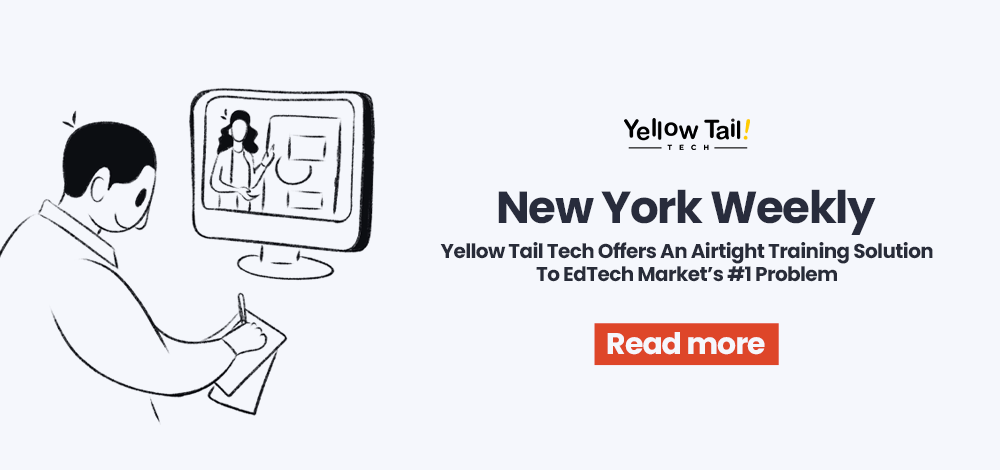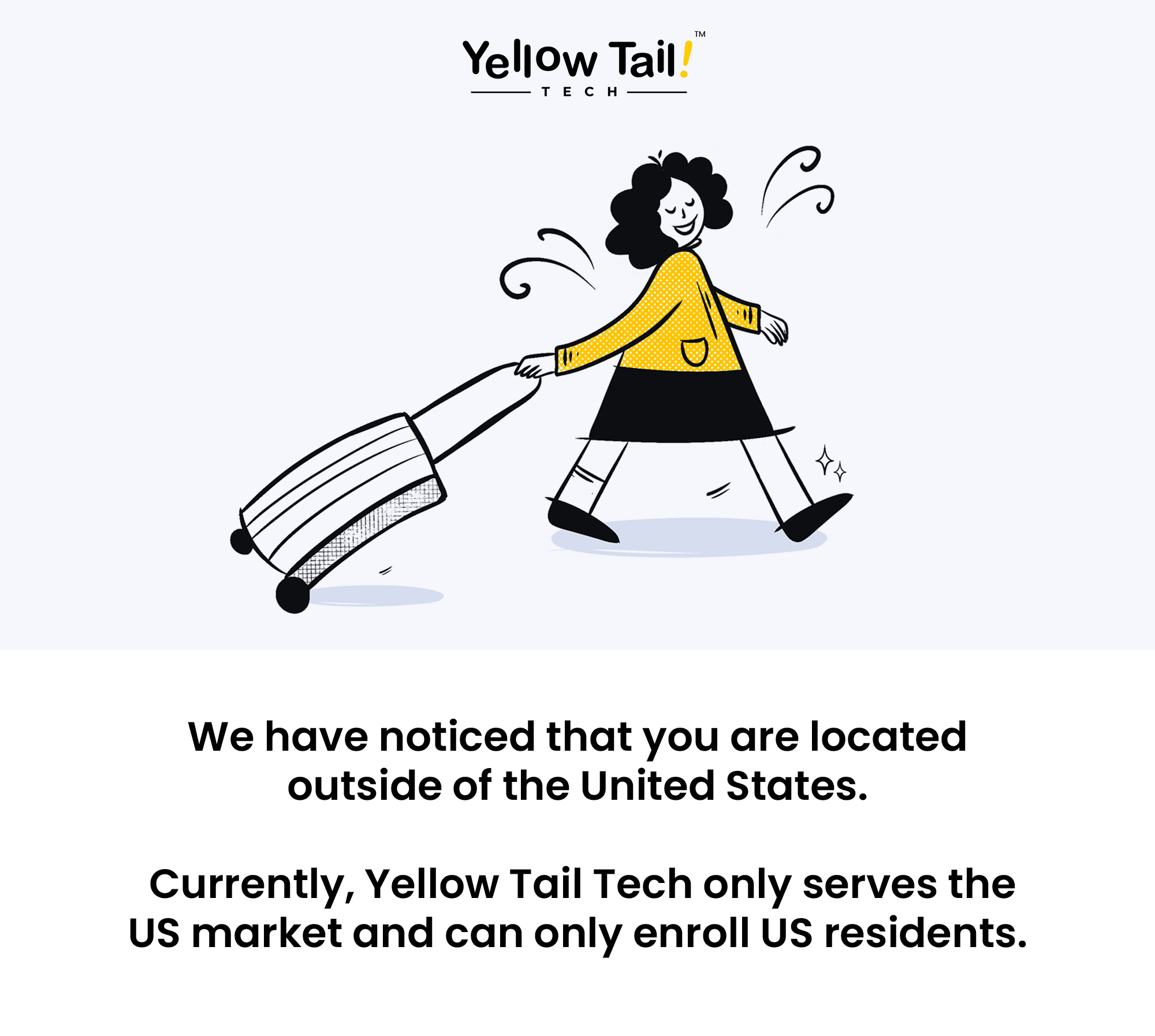
Tech job interviews are more than just conversations, they’re structured challenges designed to test your technical skills, problem-solving abilities, and communication under pressure.
You’ll face technical interview questions, coding problems, and situational scenarios that reflect real-world issues, not trick questions or riddles.
Why are these interviews so demanding?
Because tech companies want professionals who can:
- Think critically
- Learn new technology
- Contribute to cross-functional teams while aligning with their business needs and company culture.
So, what are the Top 10 Tech Job Interview Questions You Need to Prepare For?
In this article, we’ll break them down, along with expert advice from Yellow Tail Tech instructors and alums—to help you prepare, stand out, and succeed in the hiring process.
Types of Technical Interview Questions
Technical interview questions come in several forms, each designed to highlight different aspects of a candidate’s abilities.
Behavioral interview questions focus on your past experiences, such as how you:
- Handled challenges
- Worked with a team
- Resolved conflict
These questions help hiring managers assess your collaboration style, leadership potential, and interpersonal communication skills.
Then there are situational questions, which present hypothetical scenarios.
The interviewer will ask how you would respond to a challenge rather than how you have reacted in the past. Hiring reps use these questions to assess your problem-solving and decision-making skills under pressure, critical traits for roles in the tech industry where quick thinking is often required.
Mastering Technical Knowledge Questions
At the heart of any technical interview are questions that evaluate your technical knowledge, your understanding of tools, technologies, and programming languages relevant to the role.
These problems may include:
- Coding challenges
- Troubleshooting scenarios
- System design discussions
Interviewers use these to assess not just your knowledge, but also your ability to solve problems, learn new technology, and apply concepts to real world problems.
To answer effectively, use the STAR technique:
- Situation: Describe the context
- Task: What did you need to do?
- Action: What you did
- Result: What happened
This structure helps you communicate, demonstrate your thought process, and connect your answer to the role. Following this method allows you not only to show the right answer but also to explain why it was correct, how you handled uncertainty, and what you learned from the experience.
By blending solid technical skills with clear, structured communication, you’ll prove to the interviewer that you’re ready to contribute to tech companies and thrive in fast-paced, cross-functional teams.
10 Tech Job Interview Questions You May Encounter:
1. Why do you think you’re the best fit for this position?
This high-impact job interview question is more than just an icebreaker; it’s a powerful tool for assessing candidates.
The hiring manager is evaluating the candidate’s understanding of the job description, their unique skills, and how they plan to contribute to business operations.
Pro Tip: Link your technical certifications, experience with specific programming languages, and tech projects to the role’s requirements. Refer to your previous roles to demonstrate your adaptability and familiarity with various tools and skills. Use the STAR technique (Situation, Task, Action, Result) and focus on how your problem-solving skills benefited a team or project.
2. Can you describe your day-to-day in your most recent role?
This question assesses your ability to translate experience into technical knowledge.
Whether your previous role was a hands-on internship or a lab simulation, show how you managed tasks, tools, and priorities.
Mention:
- How you handled tight deadlines
- Your use of monitoring or project management tools
- How you contributed to data security, agile methodologies, or routine updates
3. Describe a situation where you encountered a technical issue and how you resolved it.
This behavioral interview question assesses your problem-solving and critical thinking in action.
Technical interviews can evaluate how candidates approach solving problems in real-world scenarios.
Focus on:
- How you approached the issue
- The tools, scripts, or commands you used
- Discovering the right answer solution (What did the process look like?)
- What you learned and documented
Avoid saying you just “Googled it.” Explain your thought process, resourcefulness, and what you’d do differently next time.
4. How do you maintain your technical skills?
Continuous learning is critical in tech. Companies want technical professionals who stay informed, adapt to new technology, and evolve with the field.
Good responses include:
- Following online communities and blogs
- Practicing coding questions on your own
- Taking online courses or attending industry conferences
- Getting constructive feedback from mentors or teammates
Mention any recent technical certifications like Lnx for Jobs program from Yellow Tail Tech or other bootcamps you’ve completed, and how they helped you learn new tools or programming languages.
5. What is the difference between a process and a thread?
This question, frequently asked by Yellow Tail Tech instructor Thierry, tests your understanding of data structures, operating systems, and technical fundamentals.
Make sure to explain:
- A process is an independent program with its own memory.
- A thread shares memory within a process but executes independently of it.
Bonus: Tie it to a real experience where you worked with multi-threaded systems or used tools to monitor processes.
6. What happens when you type a URL in your browser and press Enter?
One of the most common technical interview questions, this is often used to assess depth of understanding and logical reasoning.
A strong response should cover:
- DNS resolution
- The TCP/IP handshake
- HTTP or HTTPS request
- Server response and browser rendering
Tie it to how data privacy and data security are maintained during transactions.
7. Can you explain the difference between TCP and UDP?
This core question reveals whether you understand network protocols and business needs for speed and reliability.
- TCP is a connection-oriented protocol used in critical systems, such as websites and databases.
- UDP is faster but connectionless, used in live video or VoIP apps.
Use real-world problems or tech projects to show where you’ve configured or used both protocols.
8. What’s the difference between a public IP and a private IP?
Your answer to this question can show your grasp of technical knowledge and network structure.
Include:
- Private IP = used within internal networks
- Public IP = routable over the internet
- Explain NAT (Network Address Translation)
Use examples from your labs, like setting up a VM with a private IP and connecting it to the internet via NAT.
9. How do you manage version control in your projects?
Understanding version control is a key technical skill. Talk about:
- Using Git for tech projects
- Creating feature branches and managing pull requests
- Resolving merge conflicts
- Collaborating with cross-functional teams
This question also presents an excellent opportunity to demonstrate soft skills, such as documentation and team collaboration.
10. Where do you see yourself in the next 2–3 years?
This question might feel personal, but it’s really about your mindset around continued growth.
Solid responses include:
- Earning more and advancing while pursuing new goals

Handling the Interview
Succeeding in a technical interview requires more than just knowledge; it’s about demonstrating your problem-solving, logical reasoning, and soft skills under pressure.
Expect a mix of technical, behavioral, and situational questions, and don’t hesitate to ask clarifying questions to show your critical thinking.
Explain your thought process clearly, demonstrating how you apply your technical skills to real problems. Demonstrate your commitment to continuous learning by describing how you stay current with new technology and trends.
After the interview, send a thank-you note to the hiring manager and express your continued interest. Strong communication, a proactive mindset, and technical confidence can help you stand out in the tech industry.
Instructor and Alumni Interview Insights
At Yellow Tail Tech, real-world experience is the best teacher. That’s why we’ve included advice and sample tech interview questions directly from our instructors and alums, people who know firsthand what it takes to succeed in the technical interview rounds of many tech companies.
These questions not only help sharpen your technical skills but also provide a better understanding of what employers are looking for.
Samuel Dorcil – Instructor
Samuel emphasizes the importance of clarity and reasoning when choosing tools and environments. Expect questions that dive into your preferences and understanding of scripting, automation, and operating systems:
- What are your desired scripting and automation tools, and why?
- Which Linux distribution do you recommend and why?
These questions assess your technical knowledge, problem-solving skills, and awareness of how specific tools align with different business operations and needs.
Dani – Instructor
Dani combines technical questions with those that explore personality, reasoning, and communication skills:
- If you could have dinner with one person, dead or alive, who would it be and why?
- What OSI layer manages the communication between two applications?
- What is the most complex technical problem you’ve run into, and how did you solve it?
This blend of behavioral and technical interview questions challenges candidates to strike a balance between technical depth and personal insight, something tech companies value when hiring for cross-functional teams.
Georges Rousseau – Instructor
Georges focuses on preparation, technical storytelling, and showcasing your technical journey:
Be prepared to discuss current or past tech projects in detail.
Describe the environment you’ve worked in or interned for:
- How many servers were in the environment?
- What was your most challenging project?
Share your technical background, not just where you’re from, but:
- How did you get into tech?
- How did you transition into Linux?
Finally, demonstrate your personality. Interviewers want to know:
- Can you collaborate?
- Are you someone they’d want on their team?
These tips help highlight both hard skills and soft skills and are especially helpful when tackling behavioral interview questions and situational questions.
Caelan Dever – Alumni
Caelan presents a real-world problem-solving scenario inspired by the kind of advanced interview questions you might get in top tech companies:
A web application on an EC2 instance behind an Application Load Balancer (ALB) suddenly becomes unresponsive. CPU usage is low, memory is fine, and disk I/O is normal. What steps would you take to diagnose and resolve the issue?
This type of question tests your critical thinking, familiarity with cloud environments, and ability to troubleshoot when there’s no obvious bottleneck. It challenges your thought process, ability to ask clarifying questions, and handle tight deadlines, all while demonstrating your technical maturity.
These real insights from our team demonstrate the range of perspectives that technical professionals should prepare for, from coding questions and system diagnostics to communication style and cultural fit.
Final Thoughts: Get Ready and Get Hired
The difference between getting passed over and getting hired often comes down to preparation.
When you know the top tech job interview questions, understand what employers want, and can confidently communicate your technical knowledge, you stand out.
At Yellow Tail Tech, we help aspiring technical professionals master both the technical portion of interviews and behavioral questions. We’ve helped many job-ready candidates launch careers with top tech companies, and we’re ready to help you too.
Book your FREE 10-minute intro call now and start preparing for your future in tech with real-world training, coaching, and support built for job seekers like you.
Frequently Asked Questions
- What types of questions are asked in tech job interviews?
Expect a mix of technical, behavioral, and situational questions to assess your skills and mindset. - How should I answer technical interview questions?
Use the STAR method (Situation, Task, Action, Result) to show your thought process and solutions clearly. - How do I prepare for behavioral and situational questions?
Reflect on past experiences where you solved problems, worked in teams, or adapted to challenges. - Why do tech companies focus so much on interviews?
They want professionals who can think critically, adapt quickly, and contribute to both teams and business goals.






